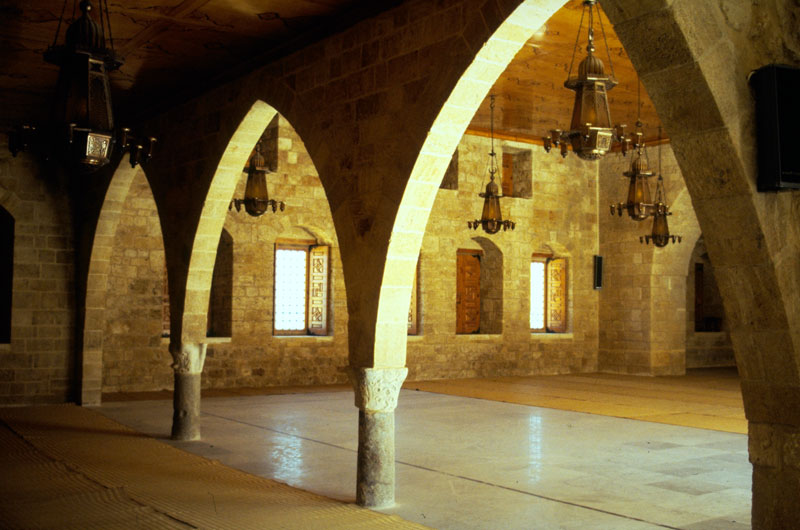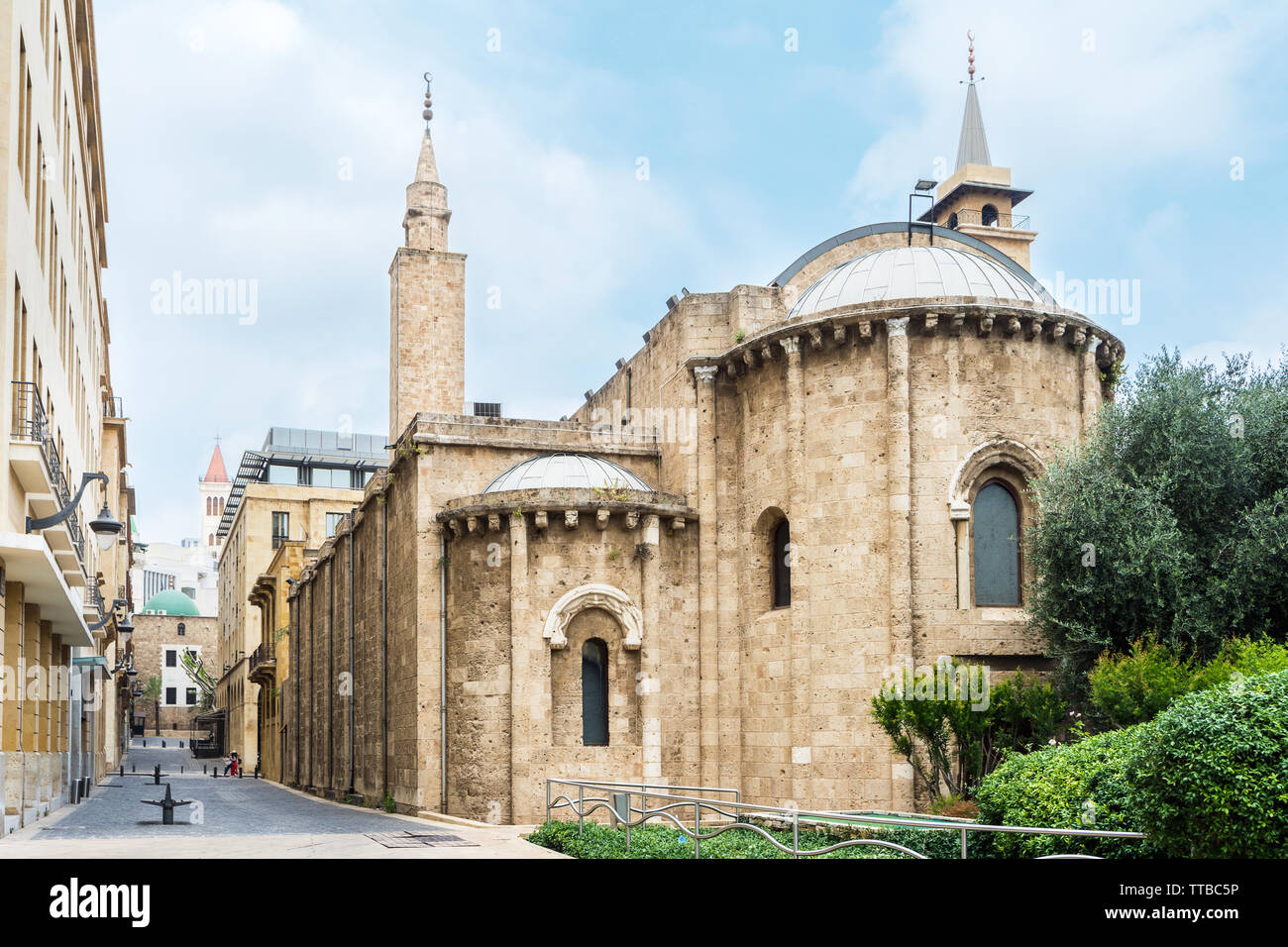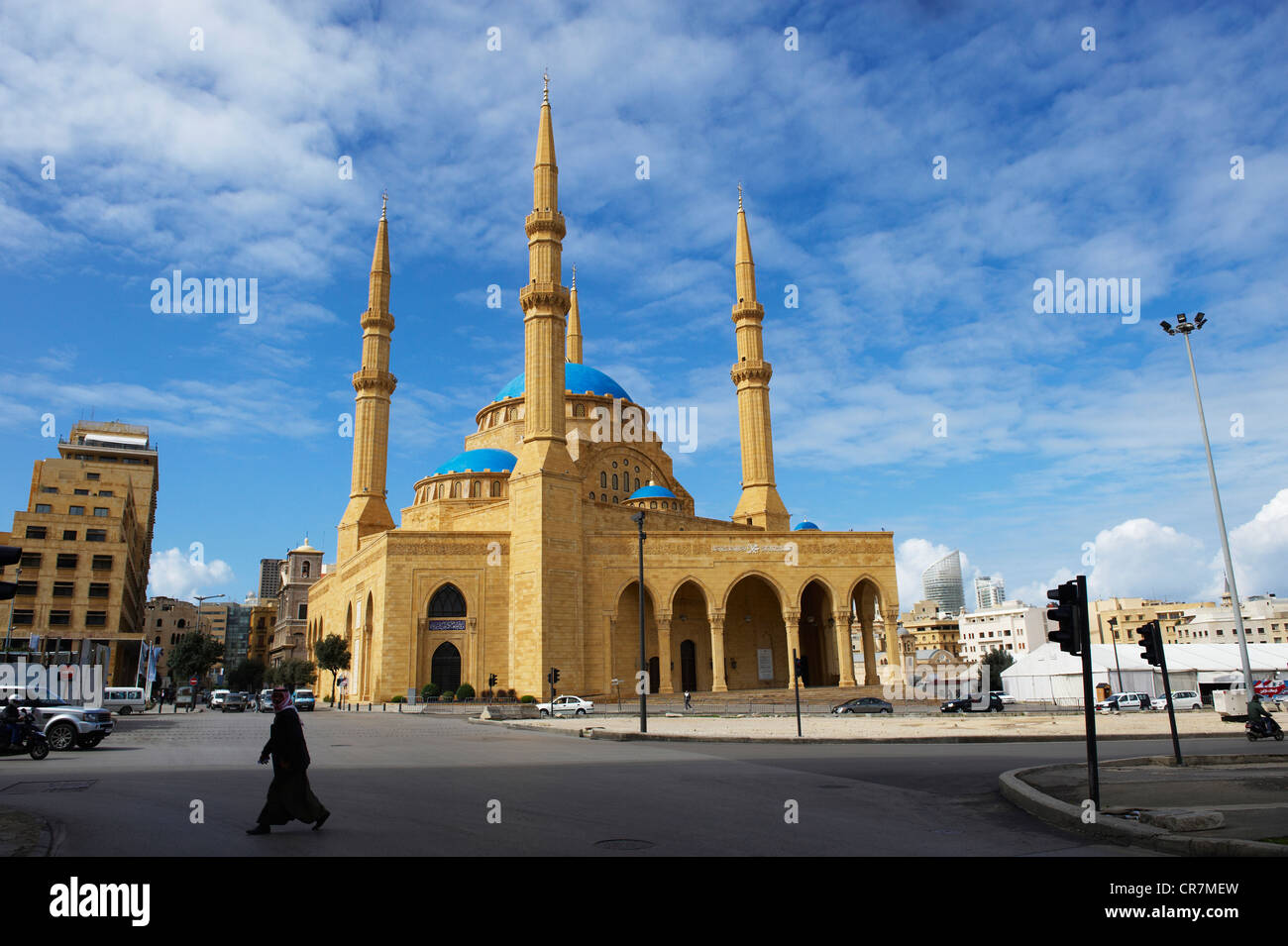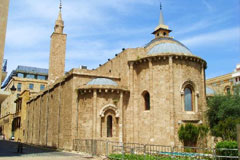Al-Omari Mosque: Historic Gem in Beirut, Lebanon

Welcome to Beirut, Lebanon, where historic gems like the Al-Omari Mosque await your discovery. This magnificent mosque is a testament to the region's rich history and cultural heritage. Let's delve into the fascinating story of the Al-Omari Mosque.
History and significance of the Al-Omari Mosque
The Al-Omari Mosque holds a significant place in the history of Beirut. It was originally built in the 12th century during the Seljuk Dynasty rule, but it has undergone several renovations and additions. The mosque was named after the second Caliph of Islam, Omar ibn Al-Khattab, who played a crucial role in the early expansion of the Islamic empire.
During the civil war in Lebanon, the mosque was heavily damaged in the 1980s. However, thanks to restoration efforts, it was rebuilt and reopened to the public in 2007, retaining its original charm and architectural magnificence.
Architectural features and cultural importance
The Al-Omari Mosque showcases a stunning blend of architectural styles, reflecting the region's diverse influences and rich history. Its grand courtyard, traditional dome, and intricate minaret create a mesmerizing backdrop for visitors.
Inside the mosque, you'll be captivated by the intricate designs and beautiful calligraphy adorning the walls. The peaceful atmosphere is enhanced by the soft blue, green, and gold hues that adorn the ceilings and arches.
Beyond its architectural beauty, the Al-Omari Mosque holds immense cultural importance for the local community. It stands as a symbol of unity and religious tolerance, welcoming people from all walks of life. It serves as a spiritual hub for Muslims, who gather here for prayers and contemplation.
Visiting the Al-Omari Mosque allows you to immerse yourself in the rich tapestry of Lebanese history and experience the tranquillity and beauty of Islamic architecture. You can also take a moment to appreciate the mosque's role in promoting cultural understanding and peace.
So, if you find yourself in Beirut, add a visit to the Al-Omari Mosque to your itinerary. It's not only a historic gem but also a living testament to the rich heritage of Lebanon.

Exterior Beauty
Exterior design and architecture of the Al-Omari Mosque
The Al-Omari Mosque, located in Beirut, Lebanon, is a historical gem that has captivated visitors worldwide with its stunning exterior design and architecture. The mosque, originally built in 1291, has undergone several renovations over the centuries to preserve its beauty and historical significance.
One of the most striking features of the mosque is its intricate facade. The exterior walls are adorned with beautiful geometric patterns and intricate Arabic calligraphy, showcasing the rich artistic heritage of the Islamic world. The use of geometric designs adds visual appeal and holds symbolic significance in Islamic art and architecture. These patterns represent the order and harmony of the universe, reminding worshippers of the divine presence.
The dome of the Al-Omari Mosque is another impressive element of its exterior design. The dome is majestically on the prayer hall, symbolizing the connection between earth and sky. Its elegant curvature and exquisite details add a sense of grandeur to the mosque's overall architectural beauty.
Minaret and its significance in Islamic architecture
The Al-Omari Mosque is known for its minaret, a prominent feature in Islamic architecture. The minaret is a tall tower attached to the mosque from which the call to prayer is made. It serves a practical purpose and holds symbolic significance in the Islamic faith.
The minaret of the Al-Omari Mosque is an architectural marvel, standing tall and proud against the backdrop of the city. Its design incorporates elements of Islamic art, such as decorative patterns and calligraphy, further enhancing its visual appeal. The minaret also features a balcony, where the muezzin stands to call the faithful to prayer five times daily.
Beyond its aesthetic beauty, the minaret is crucial in creating a sense of community and unity among Muslims. The call to prayer echoed from the minaret reminds individuals to pause their daily activities and connect with the divine. It symbolises faith and devotion, guiding Muslims in their spiritual journey.
As you stand in front of the Al-Omari Mosque and marvel at its exterior beauty, you can't help but be in awe of the rich history and architectural brilliance it represents. Whether you are an architecture enthusiast or a spiritual seeker, a visit to the Al-Omari Mosque is an experience that will leave a lasting impression. It is a testament to Lebanon's remarkable craftsmanship and cultural heritage and an opportunity to appreciate the beauty of Islamic art and architecture.

Interior Grandeur
Are you ready to embark on a virtual tour of one of Beirut, Lebanon's hidden treasures? Welcome to the Al-Omari Mosque, a historic gem that will leave you in awe with its majestic beauty and intricate design.
Interior design and layout of the Al-Omari Mosque
Step inside the Al-Omari Mosque and prepare to be captivated by its stunning interior. The mosque's design showcases a harmonious blend of Islamic and Ottoman architectural styles. Its spacious layout, adorned with beautiful geometric motifs and intricate calligraphy, creates a serene and peaceful atmosphere.
The main prayer hall, with its soaring ceilings and expansive size, is the centrepiece of the mosque. As you look up, you'll be amazed by the intricately decorated dome that serves as a dome of the Al-Omari Mosque, blending different colours and patterns. These decorative elements, including muqarnas, calligraphy, and floral designs, add a touch of elegance and beauty to the prayer hall.
Majestic prayer hall and its decorative elements
The prayer hall is a place of worship and a visual spectacle with its exquisite decorative elements. The stunning chandeliers from the ceiling illuminate the space, creating a warm and inviting ambience. The walls are adorned with beautiful Arabic calligraphy, showcasing verses from the Quran and providing an inspiring backdrop for prayer.
One cannot help but admire the attention to detail in the mosque's design. Intricate patterns and motifs can be found throughout, from the intricately carved wooden panels to the delicate stained glass windows that create a mesmerizing play of light and colour. These decorative elements add to the visual appeal and enhance the spiritual experience for worshipers.
Visiting the Al-Omari Mosque is like stepping back in time, allowing you to appreciate this architectural masterpiece's rich history and cultural significance. Whether you are a history enthusiast, an art lover, or simply someone seeking tranquillity, the Al-Omari Mosque is a must-visit destination in Beirut.
So, next time you find yourself in Beirut, include a visit to the Al-Omari Mosque in your itinerary. Immerse yourself in its interior grandeur and experience the beauty and tranquillity that this historic gem has to offer.

Al-Omari Mosque: Historic Gem in Beirut, Lebanon
As you stroll through the vibrant streets of Beirut, Lebanon, you will come across a true historic gem - the Al-Omari Mosque. This magnificent mosque holds immense cultural and religious significance and symbolises spiritual guidance and community gathering for centuries.
Cultural Significance
The Al-Omari Mosque has played a vital role in the community, serving as a prominent landmark and a source of pride for the people of Beirut. Its architectural beauty and historical importance make it a must-visit for locals and tourists alike.
Role of the Al-Omari Mosque in the community
The mosque serves as a place of worship and a centre for social and educational activities. It has become a hub for community gatherings and events, fostering a sense of unity and togetherness among people from different walks of life.
The Al-Omari Mosque is also pivotal in promoting interfaith dialogue and understanding. It welcomes visitors from all faiths, allowing them to learn more about Islamic culture and traditions.
Religious events and gatherings held at the mosque
Throughout the year, the Al-Omari Mosque hosts various religious events and gatherings that attract worshippers from near and far. Friday prayers, also known as Jumu'ah, are particularly special, as the mosque comes alive with devoted worshippers filling its halls and courtyard.
During the holy month of Ramadan, the mosque becomes a focal point for Muslims as they gather for iftar, breaking the fast at sunset. The atmosphere is filled with a profound sense of spirituality and communal harmony.
Additionally, the Al-Omari Mosque organizes religious lectures and classes, providing a platform for individuals to broaden their knowledge of Islam and strengthen their faith. These activities contribute to the overall growth and well-being of the community.
The Al-Omari Mosque is a testament to Lebanon's rich history and cultural diversity. Its preservation and continued significance remind us to embrace our heritage and foster connections within our communities.
So, the next time you find yourself in Beirut, visit the Al-Omari Mosque and experience its awe-inspiring beauty and spiritual sanctuary. It is a historic gem and a place where people come together to celebrate their shared values and beliefs, creating a strong sense of unity.

Restoration and Preservation Efforts
Efforts to restore and preserve the Al-Omari Mosque
If you are planning a trip to Beirut, Lebanon, make sure to visit the Al-Omari Mosque, a historic gem showcasing the city's rich cultural heritage. Over the years, efforts have been made to restore and preserve this architectural masterpiece, ensuring that future generations can appreciate its beauty and significance.
Dedicated teams of architects, historians, and craftsmen have carried out the restoration and preservation efforts for the Al-Omari Mosque. These professionals have worked tirelessly to revitalize this iconic landmark and return it to its former glory.
The restoration process involves meticulous attention to detail, preserving historical and cultural authenticity. Architects and historians have extensively researched the original design and architecture, using ancient documents, photographs, and other sources to guide their work. They have carefully analyzed the structural integrity of the mosque and made necessary repairs to ensure its long-term stability.
Preservation efforts have also included conserving precious historical artefacts and artwork within the mosque. From intricate calligraphy to beautifully crafted wooden panels, these treasures have been carefully protected and restored to showcase the artistic and cultural heritage of the mosque.
Challenges faced and successful restoration stories
The restoration and preservation of the Al-Omari Mosque have not been without challenges. Beirut has witnessed decades of political unrest and armed conflicts, damaging and destroying its architectural landmarks. However, despite these obstacles, restoration efforts have successfully revived the Al-Omari Mosque.
One notable restoration story is the reconstruction of the mosque's minaret. The original minaret was severely damaged during the Lebanese Civil War but was meticulously restored to its former grandeur. The craftsmanship and attention to detail in this restoration project are truly commendable.
Another successful restoration effort is revitalising the mosque's courtyard and gardens. Through careful landscaping and gardening, the once-neglected outdoor spaces have been transformed into serene sanctuaries, providing a peaceful environment for visitors and worshippers.
The restoration and preservation of the Al-Omari Mosque serve as a testament to the collective dedication and passion for preserving Lebanon's cultural heritage. By ensuring that this historic gem survives the test of time, future generations can appreciate its architectural beauty and historical significance.
So, when you visit Beirut, Lebanon, don't miss the Al-Omari Mosque. Take a moment to admire its stunning craftsmanship and learn about its rich history. And remember, your support for the restoration and preservation efforts is crucial in maintaining and safeguarding this cultural treasure.
